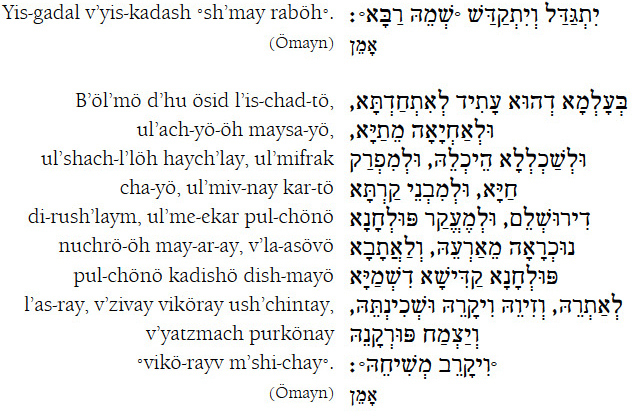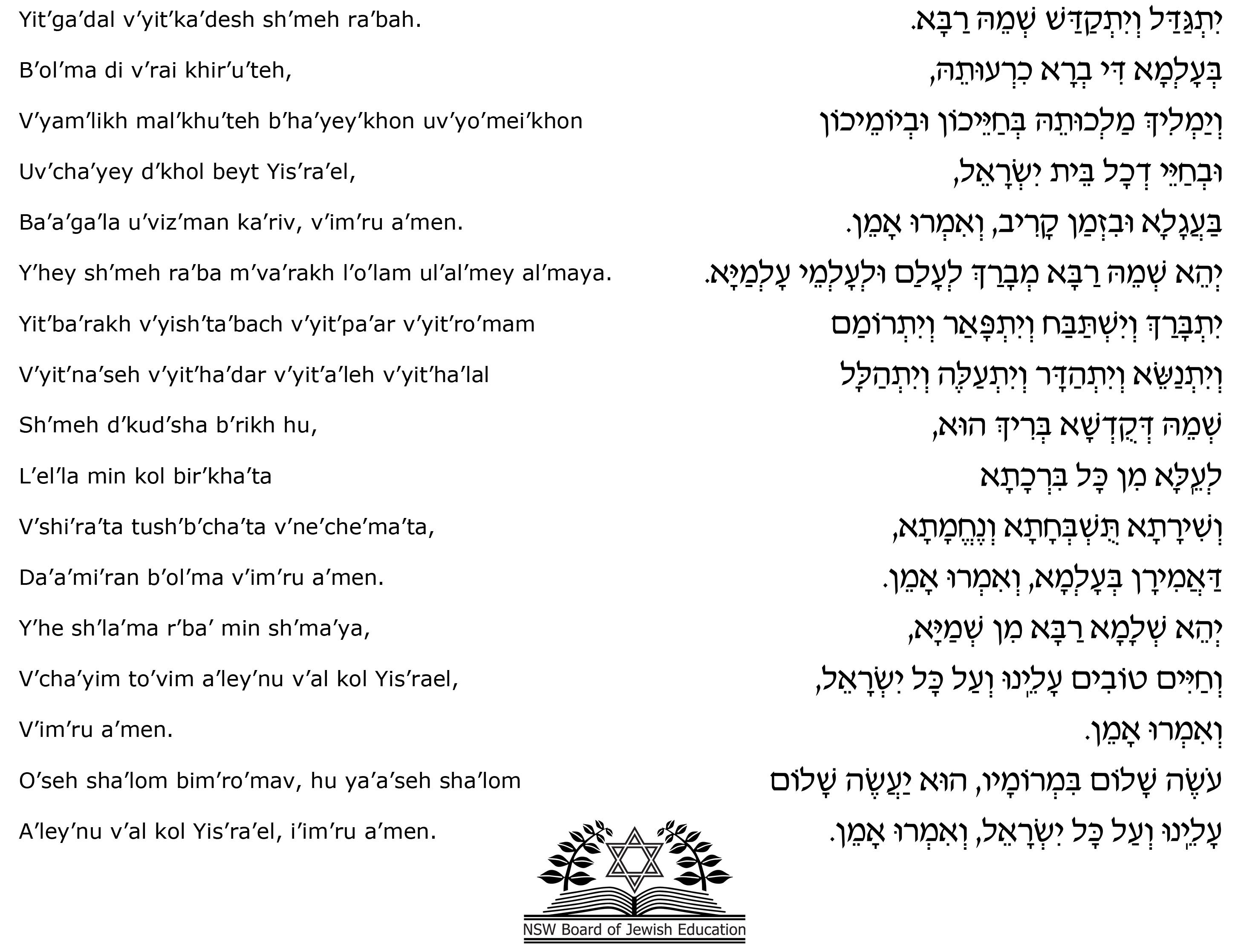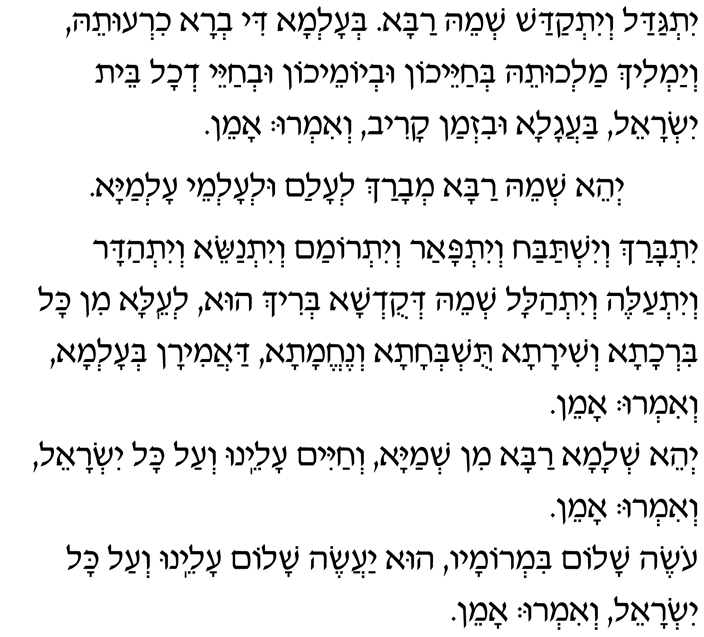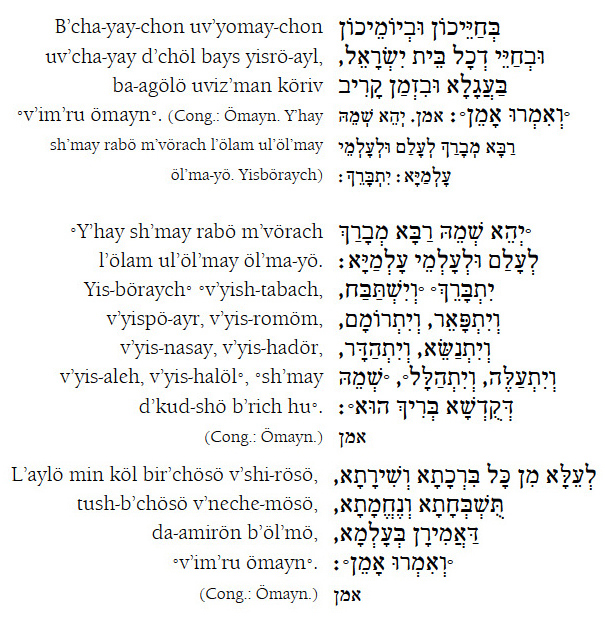
< /Ashkenazic Hebrew kɑˈdɪʃ ɪm; Sephardic Hebrew kɑ diˈʃim/. Judaism.
- (italics) a liturgical prayer, consisting of three or six verses, recited at specified points during each of the three daily services and on certain other occasions.
- (italics) Also called Mourner’s Kaddish. the five-verse form of this prayer that is recited at specified points during each of the three daily services by one observing the mourning period of 11 months, beginning on the day of burial, for a deceased parent, sibling, child, or spouse, and by one observing the anniversary of such a death.
- Kaddishim, persons who recite this prayer.
noun plural Kaddishim (kæˈdɪʃɪm) Judaism
- an ancient Jewish liturgical prayer largely written in Aramaic and used in various forms to separate sections of the liturgy. Mourners have the right to recite some of these in public prayer during the year after, and on the anniversary of, a death
- say Kaddish to be a mourner
“doxology of the Jewish ritual,” 1610s, from Aramaic qaddish “holy, holy one,” from stem of q’dhash “was holy,” ithqaddash “was sanctified,” related to Hebrew qadhash “was holy,” qadhosh “holy.” According to Klein, the name probably is from the second word of the text veyithqaddash “and sanctified be.”
 Liberal Dictionary English Dictionary
Liberal Dictionary English Dictionary



